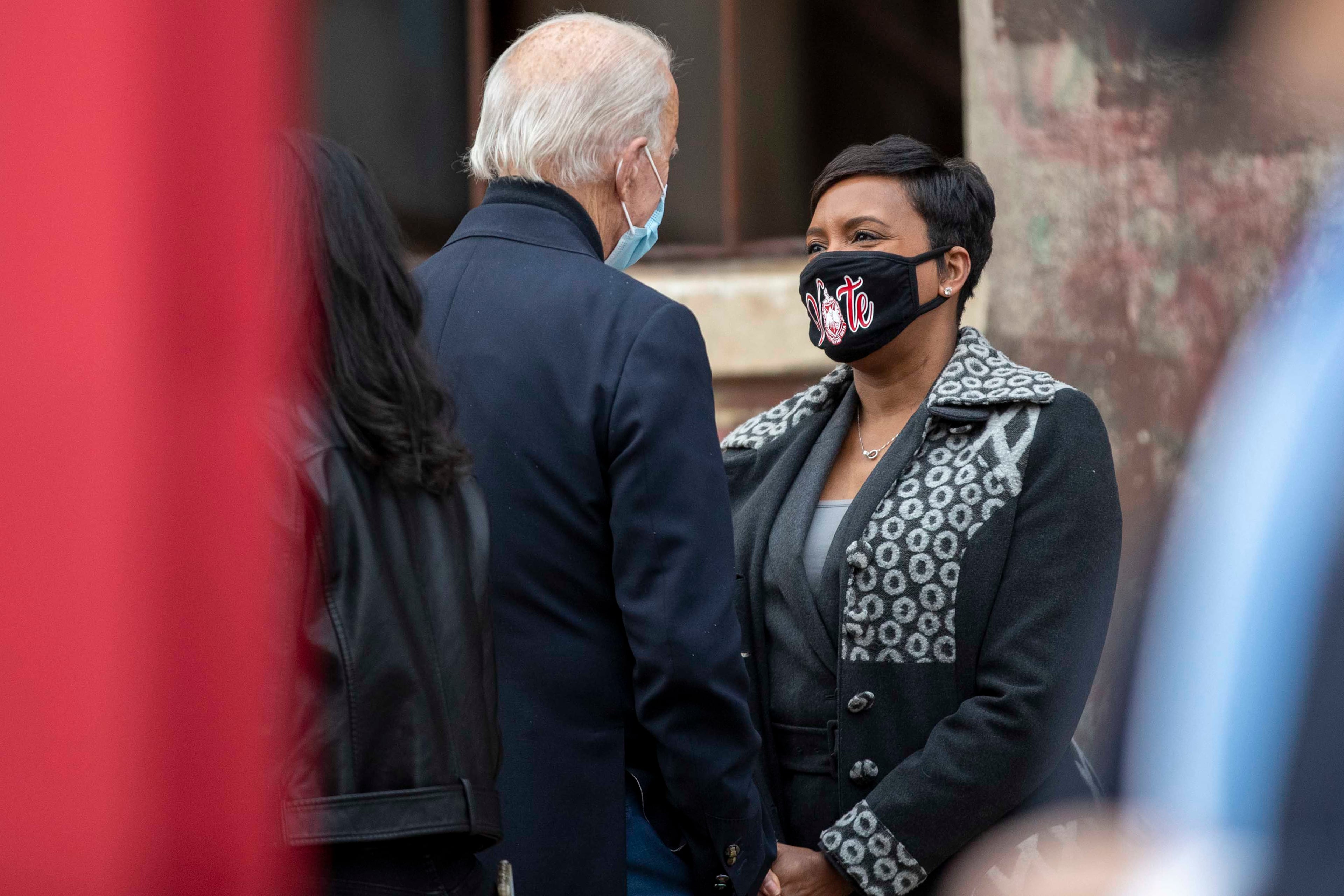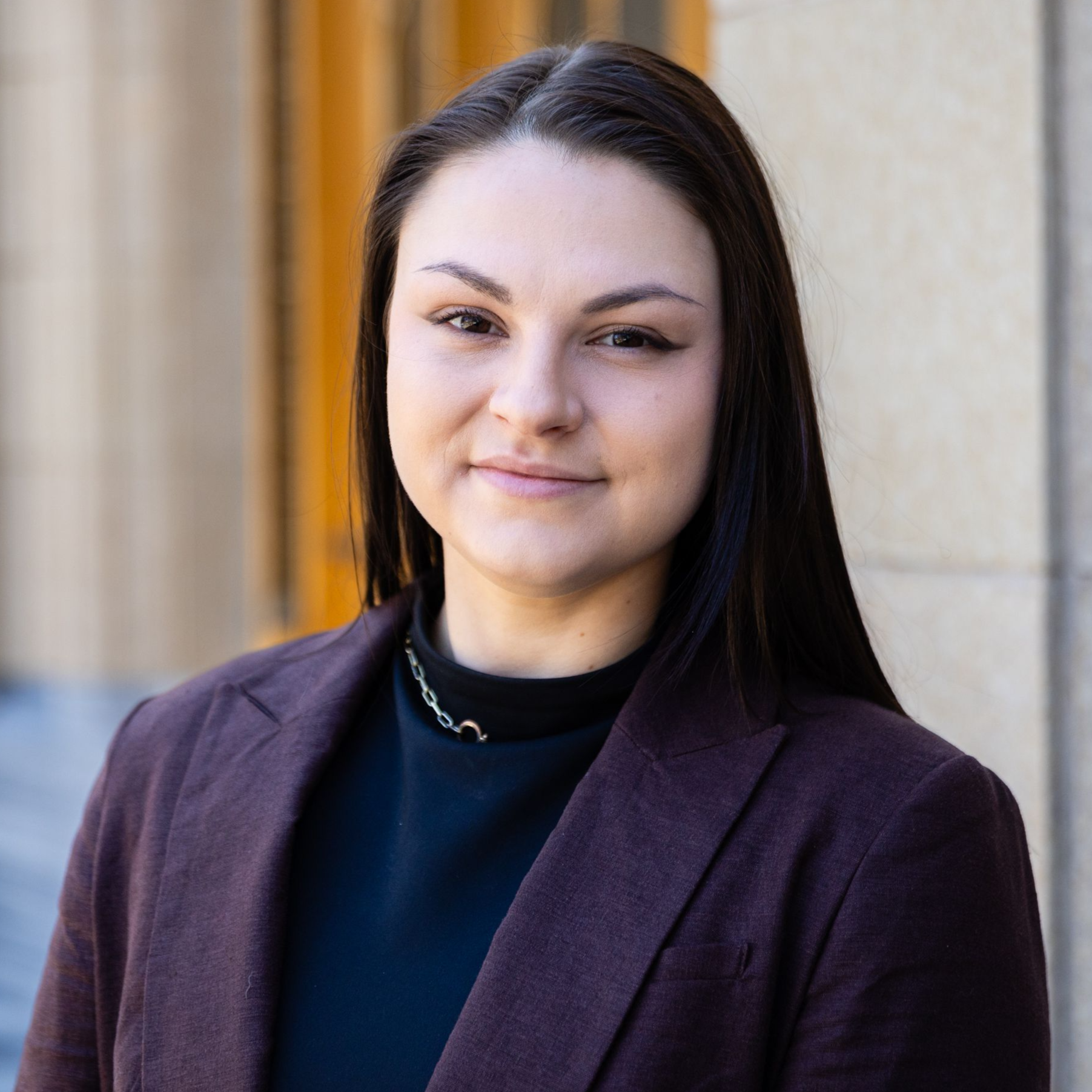Bottoms is running for governor. Will her mayoral legacy be a boon or burden?

During her lone term as mayor, Keisha Lance Bottoms struggled to navigate Atlanta through a deadly pandemic and waves of mass protests against police violence. Then she shocked the political world by abruptly abandoning the reelection campaign she had just launched.
Bottoms’ entry into the governor’s race this week has revived scrutiny of her tumultuous tenure as mayor, which was defined by twin crises and capped by her dramatic decision to walk away from City Hall in 2021.
In a recent interview, Bottoms said she had no regrets about the choice, calling it one “based on that season in my life.” But as she mounts a statewide comeback, she faces a central question: Why is she ready to run for governor now, after choosing not to seek reelection as mayor then?
It’s no abstract debate. Her Democratic rivals, including state Sen. Jason Esteves, are likely to press the issue in next year’s primary. And whoever emerges as the Republican nominee will almost certainly try to brand her a quitter.

“The challenge for Bottoms is the voters will judge her based on her record as mayor, not her campaign for mayor,” said Fred Hicks, a veteran political strategist who worked for a rival mayoral contender in 2017. “And they’ll ask why they should vote for her for governor when she didn’t serve two terms as mayor.”
Bottoms said she’s proud of her record, saying her work on economic development projects and shoring up the city’s infrastructure “delivered not just for Atlanta, but for our state.” And her allies say the race will be far more about the future than the past.
“She had good solid reasons to decide against a run. She was assessing her future on the national level and thought she could be a better asset to Democrats outside of the office,” said George Andrews, a longtime banker who was the founder of Capitol City Bank & Trust.
He added: “I don’t care who runs on the Democratic ticket, they’re going to have an uphill fight. The key for Bottoms to win is how well she can articulate a vision for the state that appeals to everyone from Blue Ridge to Bainbridge.”
‘It was my choice’
Bottoms often refers to herself as an “accidental politician,” rising from magistrate judge to two-term Atlanta City Council member before winning the city’s top job in 2017.
Her term started in the shadow of a looming federal corruption probe into her predecessor Kasim Reed’s administration, leading her to demand the resignations of her entire Cabinet before she celebrated her first 100 days in office.
That fallout seemed a distant memory by 2020, when she feuded with Gov. Brian Kemp over his aggressive attempts to rollback coronavirus restrictions and faced backlash for her handling of the protests for racial justice that rocked the city after the murder of George Floyd.
As her national profile grew, critics said Bottoms was becoming increasingly removed from the city’s day-to-day challenges. Then came the police killing of Rayshard Brooks — a 27-year-old Black man fatally shot by a white Atlanta officer who was later charged with murder. (The charges were later dismissed.)
The Wendy’s parking lot where Brooks was killed became a symbol of unrest. After it was torched by arsonists, it turned into a hub of lawlessness and violence. Bottoms ordered it shut down after gunmen opened fire on an SUV passing the site, killing 8-year-old Secoriea Turner.
In an interview recounting her time in office for Black History Month, Bottoms told the AJC she had wanted to put an end to the demonstrations sooner, but that several local officials encouraged her to wait while they worked to disperse the protests.
“I agreed to give it a few more days,” she said, “and so you can’t help but wonder, if we had done something differently, would there have been a different outcome.”
To address both protesters’ complaints and rising crime in the city, Bottoms unveiled plans to build Atlanta’s new public safety training center, a move that sparked years of fierce opposition and clashes between law enforcement and opponents that sometimes turned violent.

Bottoms said she navigated that turbulent period with every intention of seeking a second term — just like every other first-term mayor in modern Atlanta history.
She was ready to run on a record of expanding affordable housing, maintaining balanced budgets, recruiting new jobs deals and avoiding tax hikes during an unprecedented moment. She was particularly proud, she said, of her efforts to thwart a GOP-led effort to “steal” oversight of Atlanta’s busy airport.
Then-President Joe Biden, a close ally, hosted the first fundraiser of his presidency to jumpstart her campaign, raising more than $500,000.
“I knew I had the money, I knew I had the poll numbers, and I knew that it was my choice. At that point, it was just I had to make a decision, do you want to start fresh, or do you want to do this again?” she said.
She opted for the former path, saying she had no regrets about stepping away from City Hall and later joining Biden’s inner circle as a senior White House adviser.
“Voters get to decide every four years whether they want you to serve again, and I get to decide too. And I was proud of what I had accomplished,” she said.
“I very much appreciated that I would leave on my terms, not because I lost an election or my term was over, that it was my choice, my call.”

‘The greatest spokesperson’
It was a decision that came amid mounting political pressure and deepening divisions at City Hall.
What began as a cooperative relationship with state leaders quickly soured as a spike in violent crime, clashes over coronavirus restrictions and mass protests in downtown Atlanta heightened tensions with Kemp, who even took the mayor to court over the city’s mask mandate.
At the same time, Bottoms’ struggles with public safety fueled a conservative push to break off the wealthy Buckhead neighborhood into a separate city, forging a movement that became one of the most contentious battles of her tenure.
“She quit the mayor’s race in disgrace with her tail between her legs. I do not consider her a fighter, that’s for sure,” said Bill White, who led the breakaway movement. “I can say she was the greatest spokesperson for Buckhead City.”

After Bottoms left office, the push for secession ultimately failed in the Legislature, thanks in part to a well-financed coalition that mobilized to keep the city united. But even some of those who helped defeat the city’s divorce were frustrated by her leadership.
“She was perceived by many as being indifferent to Buckhead residents’ concerns and they believe as mayor she didn’t deliver for the people here,” said Edward Lindsey, a former GOP legislator who co-chaired the group. “She’s going to have a hard time overcoming that.”
Others question how Bottoms’ exit strategy could shape voter perceptions. An Atlanta Journal-Constitution poll shortly before her term ended showed most Atlantans had a favorable opinion of Bottoms, even as many expressed concern about the city’s direction on her watch.
“The job of a mayor — when you get elected and you take office the first day — the goal is eight years, it’s never four years,” said Howard Franklin, a longtime Atlanta operative and well-connected lobbyist who has supported Esteves in the past. “And the troubling part is that she didn’t explain why she decided to leave.”

Political observers say Bottoms, who fielded repeated questions on her decision as she entered the race, won’t be able to skirt the issue on the campaign trail. Former Atlanta Mayor Shirley Franklin said “part of running for office is answering those questions.”
But she also praised Bottoms’ work after her term ended. Bottoms rejected Biden’s offer of a Cabinet post before her tenure ended, and later served as a key adviser to the president.
“She left office and went to the White House. We have not had another mayor who has done that,” Franklin said. “It’s fairly rare and it’s quite an honor to be asked to serve in the President’s Cabinet or in a top position.”
Her successor, Mayor Andre Dickens, has declined to endorse any candidate in the race for governor as he gears up for his own reelection. But he had nothing but praise for Bottoms.
“I love Keisha Lance Bottoms, that’s my friend. That’s my sister. That’s somebody who has served in all three branches of city government — knows what she’s doing,” said Dickens. “Somebody who is extremely likable.”
Bottoms said she won’t shy from the issue, something she sensed would follow her even when she declined to seek a second term.
At the time of her 2021 announcement, she made clear she could return to elected office — even leaving the door open to another run for mayor. She said she’s been quietly preparing ever since.
“From the moment I left the mayor’s office, I was not saying goodbye to politics,” she said in an interview earlier this year. “I was saying goodbye to that season.”




